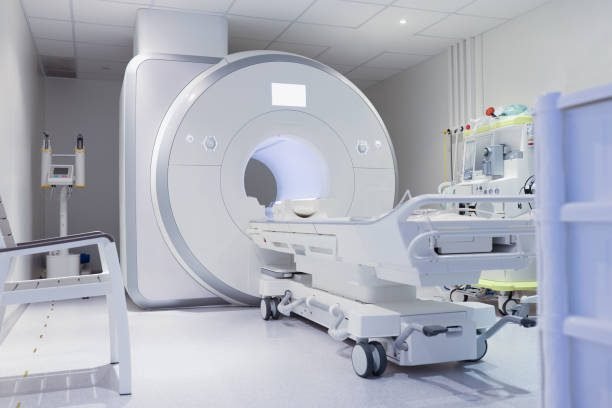In the realm of nuclear energy and technology, materials that exhibit high neutron absorption, thermal stability, and resistance to radiation damage are indispensable. Boron carbide (B₄C) is one such material. Known as one of the hardest materials after diamond and cubic boron nitride, boron carbide has unique properties that make it ideal for applications in nuclear reactors, where safety, performance, and durability are critical.
What is Boron Carbide?
Properties and Composition:
- Boron carbide is a compound of boron and carbon (B₄C).
- Known for its hardness, low density, high melting point (~2,350°C), and excellent neutron absorption capacity.
- Often called “black diamond” due to its extreme hardness.
- Exceptional thermal and chemical stability make it suitable for extreme environments like nuclear reactors.
Grades of Boron Carbide:
- Industrial-grade: Used in abrasives, ceramics, and refractory applications.
- Nuclear-grade: Highly purified to reduce impurities (particularly metallic impurities like iron) that can interfere with its neutron-absorbing properties.
Why Nuclear-Grade Boron Carbide?
Neutron Absorption Capabilities:
- Boron carbide has one of the highest neutron absorption cross-sections, especially for thermal neutrons, thanks to its high boron-10 (¹⁰B) isotope content.
- ¹⁰B readily captures neutrons, converting them into lithium and alpha particles, thereby reducing neutron activity and controlling chain reactions within nuclear reactors.
Requirements for Nuclear Applications:
- Nuclear-grade boron carbide is subjected to strict quality control and purification processes to ensure minimal impurity levels.
- Common impurities that are controlled include iron, aluminum, and silicon.
- The manufacturing process also ensures the consistency and distribution of the boron-10 isotope, which directly influences its neutron-absorbing effectiveness.
Applications of Nuclear-Grade Boron Carbide


1. Nuclear Reactors (Control Rods and Shielding):
- Boron carbide is primarily used in control rods within nuclear reactors.
- Control rods contain nuclear-grade boron carbide pellets that can be inserted or withdrawn to control the rate of the nuclear fission chain reaction, providing an essential safety mechanism.
- Also used in neutron shielding to protect reactor walls, equipment, and personnel from radiation exposure.
2. Radiation Shielding in Medical and Research Facilities:
- Aside from nuclear power plants, boron carbide is used in medical and research facilities that handle radiation sources.
- Its effectiveness in absorbing neutrons makes it suitable for shielding in neutron therapy rooms and research labs working with nuclear material.
3. Emergency Shutdown Systems:
- In emergency scenarios, nuclear-grade boron carbide can be deployed rapidly to absorb excess neutrons and safely shut down a reactor.
- This emergency shutdown system is vital to prevent overheating and potential meltdown scenarios, further underscoring its role in nuclear safety.
4. Storage and Disposal of Nuclear Waste:
- The neutron absorption properties of boron carbide make it an ideal material for storing spent fuel rods and other radioactive materials.
- Used in canisters and containers that hold nuclear waste, it prevents unwanted neutron interactions that could lead to unintentional chain reactions.
Manufacturing and Quality Control of Nuclear-Grade Boron Carbide
Purification Process:
- The production of nuclear-grade boron carbide involves extensive purification to remove metallic impurities and other contaminants.
- Advanced techniques, such as chemical vapor deposition (CVD) or hot pressing, may be used to enhance material consistency and purity.
Testing and Certification:
- To meet stringent industry standards, nuclear-grade boron carbide undergoes rigorous testing for chemical composition, density, hardness, and isotopic purity.
- Standards and certifications, such as those from the American Society for Testing and Materials (ASTM), ensure that boron carbide meets the requirements for nuclear applications.
Conclusion
Nuclear-grade boron carbide stands out as a crucial material in the nuclear industry, offering a powerful combination of hardness, thermal stability, and neutron absorption. Its role in control rods, radiation shielding, and nuclear waste storage systems underscores its importance in maintaining safe and efficient operations in nuclear power plants and beyond. As the demand for nuclear energy grows and safety standards become more stringent, nuclear-grade boron carbide will continue to play an indispensable role, potentially leading to even more advanced applications and safety solutions in the future.
Henan Superior Abrasives (HSA) is a professional supplier of boron carbide, silicon carbide and other abrasives in China. If you have any needs, please feel free to contact us!
- Email: sales@superior-abrasives.com
- WhatsApp: +86-18638638803